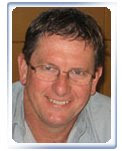Risky Business.
Parishes, or other ministry units, and Anglicare need to work with each other for the sake of the kingdom of God.
Without each other we both run the risk of being captive to our respective self-interest and economic model. You know the strategy, get more pews filled, or get more government funding, so that you can pay the bills. It sounds the same, but the two models are actually different enough to allow parishes and Anglicare to take different sorts of risks.
On one hand, Anglicare works with people on the fringes of society, often people who experience considerable disadvantage. Anglicare has developed expertise in assisting these people, sometimes in challenging circumstances. This includes research and advocacy as a part of a national network. Even with the compassion and commitment of great staff Anglicare is limited in what it can achieve.
On the other hand, a parish offers a broader range of care to a broader range of people. The parish community exists outside of service delivery timeframes and independently of funding agreements. It is a voluntary community. It is a faith community. It is a community that knows and shows the love of God. A parish can invite people into a (hopefully healthy) community.
Parishes individually, and as a part of the Diocese, have the broadest criteria for mission. Charles Finney in his 1835 ‘Lectures on Revivals of Religion’ wrote, ‘The great business of the Church is to reform the world’. This is the truly inspiring big picture mission of the church, to consider the very nature of human existence on the planet, with all of the relationships that this entails, and then seek to address the complex problems of our age in a Godlike inspiring holistic manner. This can be explored through thinking with God (theology), worship, prayer and action. Out of this faith community approach, defining principles for our times can grow and inform the reform of the world. It is about the kingdom of God.
Without ignoring the big picture, Anglicare is charged with a narrower focus and responsibility: to meet human need, and to seek to transform unjust structures in society. The experience of assisting people with complex and challenging needs gives Anglicare deep insight into how our human existence impacts upon people today: who gets hurt, who is left behind?
Working from these two different though interconnected perspectives, Anglicare and Parishes can achieve more together than either can do alone. The framework for this cooperation is: relationship, communication, shared experience and expertise, and mutual learning.
To achieve this will take a change of focus, letting go, innovation and taking risks. Jesus said, ”Those who find their life will lose it, and those who lose their life for my sake will find it.” What other choice do we have?
*The Rev’d Ian serves as Director of Mission & Justice with Anglicare

Subscribe to:
Post Comments (Atom)

No comments:
Post a Comment